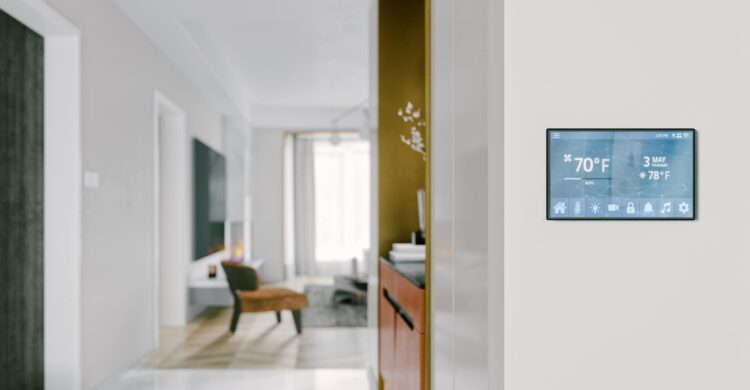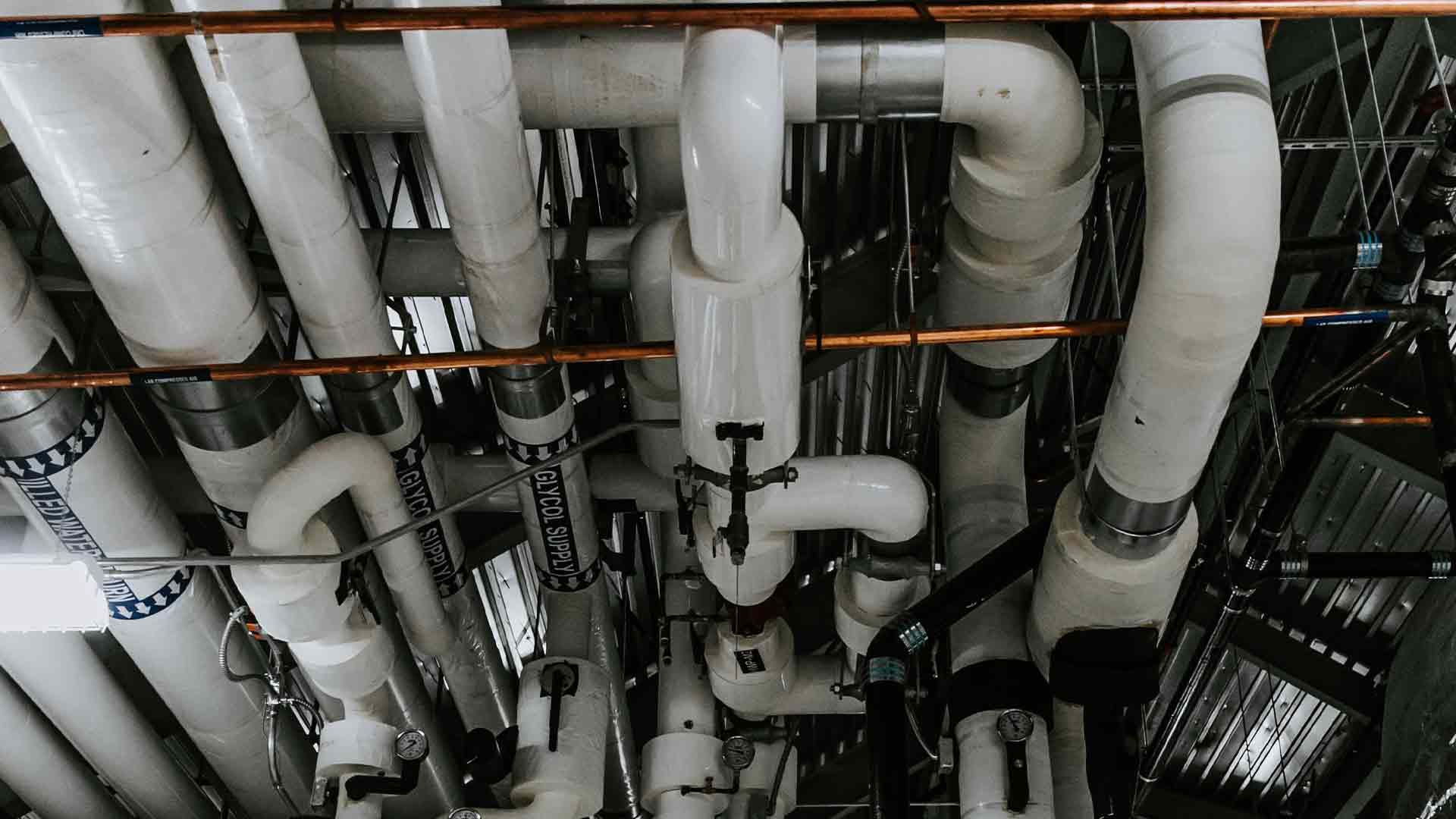
Best Temperature for My House: By Season
What is the best temperature for my house?
You love the crisp cool air your home’s AC unit provides. But the more it runs, the more you dislike opening your utility bills – because HVAC, unfortunately, is a big culprit in your home’s energy usage.
The good news is that the latest air conditioners provide a level of energy efficiency unmatched in the history of home comfort – and that’s true for all HVAC components in general, especially those sold by brands like Carrier, Daikin, Lennox, Trane, and York. The bad news, however, is that energy rates are also on the rise. For example, as this May 16, 2023, AP story notes: Georgia Power is set to raise its rates by 12% beginning in June after Georgia’s elected utility regulators approved the boost to make up for the higher cost of fuel. (Statesboro Herald)
Therefore, it is a good idea for all budget-minded homeowners to determine methods of streamlining their HVAC usage to keep their electrical bills lower – no matter if it’s summer, fall, winter, or spring. And the other good news is that there are things you can do to ensure both your home comfort while maximizing your home HVAC efficiency. One of the best ways to do this is to set your thermostat for specific temperatures throughout each season.
Since the weather where you live makes all the difference in how much your HVAC needs to run (to create ideal comfort), you do need to be flexible with your thermostat. You can even be flexible during the day to maximize your efficiency (more on that later).
The Ideal HVAC Temp for Summer
It can get unbearably hot in north Georgia from June-August (and beyond). In fact, the average high temperature for Atlanta in July is 90.7 degrees Fahrenheit and 91 in Athens. Even the cooler mountain setting of Dahlonega averages 85 in July. All that means your AC is putting in work to keep you cool in a north Georgia summer. However, it does not need to overwork, and you can maximize your energy output by keeping your thermostat set at 78 degrees. This is a temperature that will allow your air conditioner some rest – constant running is the absolute enemy of efficiency.
In fact, you can even set that temperature for higher during the day – assuming you will not be home. ENERGY STAR (a program run by the U.S. Department of Energy and the Environmental Protection Agency that focuses on energy consumption) recommends that you set your thermostat for 5-8 degrees higher on those days when you are not at home.
If you have a programmable thermostat, you can set it to run less during those times you know you will not be home. Meanwhile, if you have a new smart thermostat, you can program it to learn your schedule and needs and allow it to adjust accordingly – it will even consider outdoor temperature to maximize efficiency.
The Ideal HVAC Temp for Fall
Since our autumn weather doesn’t usually cool off until October – at least during the day – you can expect to maintain similar thermostat usage from summer. For example, Gainesville still averages 80 degrees per day in September, while Buford is usually around 82.
However, as the weather becomes more volatile, you should be prepared to adjust your thermostat, setting its average temperature range between 70-78 degrees. This may mean that your heat pump or furnace kicks on at night, so be sure that the unit has been serviced and is ready for work. Because by November, our average high temps drop to 63 in Buford and 62 in Gainesville, with lows, respectively, of 39 and 41.
The Ideal HVAC Temp for Winter
North Georgia winters can vary wildly in their lows, and while we generally have what’s considered mild weather from December to February, you can be sure that the heating portion of your HVAC will be tested at some point. Just look at this past winter, when we set December records with lows in the single digits over multiple days.
So, while Jefferson averages 54-degree highs and 36-degree lows in January and Cumming ranges between 51 and 30 over that span, 68 degrees is probably the best setting you can establish on your thermostat for winter. That temperature will keep you just warm enough while not forcing your heating units to run nonstop.
The Ideal HVAC Temp for Spring
Just like fall, temperatures can vary wildly from March to May, which is why you should be willing to adjust your thermostat between 68-78 degrees in the spring.
For instance, March in Winder averages between 66 and 45 degrees, while May in Dunwoody goes all the way up to 81 and 60 degrees.
Other factors improve HVAC efficiency
Thanks to modern technology, our homes offer better comfort than ever – on top of that, there are other factors that improve efficiency beyond anything once possible. And if you have an older system and are seeing rising utility costs year over year, perhaps it’s time to consider revamping your system in favor of a system that will pay for itself over the life of the unit(s).
For instance, these advances allow your HVAC to work much more economically:
Multi-Zoned Systems
It used to be that thermostats, stuck in one room in a house, controlled the temperature for the entire home. Not anymore. Thanks to advancements, HVAC professionals can now install Zoning Systems in your home, which allows your heating and cooling systems to operate at peak efficiency. These Zones are heated and cooled according to several factors, including how much you use them and how quickly they heat up during the day.
Smart Thermostats
We mentioned these earlier, but modern smart thermostats really are impressive in their capabilities. They can process an incredible amount of information, including the temperatures in various rooms as compared to the temperature and humidity present outside. It can also learn when you are home or not and which rooms you use most frequently. It then takes all this information, processes what it will take for your air conditioner and/or heater to deliver the right amount of comfort, and relays it to the appropriate appliance.
Multi-Stage Heating and Cooling
In older systems, when your air conditioner or heater switched on, they did so at full blast and shifted air around your house while running full speed. Often this was a waste of energy, however, and modern air conditioners and heaters have addressed this by utilizing multi-stage operations. Instead of running at full blast, they can run at different speeds, depending on your home’s comfort needs, and only employ the energy required to cool/heat your home.
Ductless Mini Splits
Depending on its layout, age, and construction, you may find certain rooms in your home struggle to maintain top-level comfort. Modern systems, on top of multi-zones and smart thermostats, have an even more potent response in the shape of ductless mini split units. These HVAC units can be installed almost anywhere and offer direct comfort to rooms of just about any size.
Curtains and Blinds
Not every development is high tech, however, and installing curtains and blinds on your windows can make a real difference in the temperature in your home. And this option offers a very efficient method of shielding you from the sun’s heat.
Proper Insulation
The North American Insulation Manufacturers Association estimates that 90 percent of single-family homes in the United States are under-insulated. Attic insulation can do much to lower the loss of comfortable air in your home.
Seal up Cracks to the Outside
Making your home comfortable is as much about keeping conditioned air inside as it is keeping outside air out. Leaks mean that your heating and air conditioning units will have to run longer and harder than a home that is properly sealed. Check for gaps or hot/cold spots around all doors and windows and caulk them shut or find an alternative.
Make just a few of these changes, including selecting the ideal temperatures for our home thermostat, and you will see a noticeable difference in your HVAC efficiency and – most importantly – your utility bills.
If your system is not responding as you hoped, or these changes do not make a significant difference, perhaps it is time to revamp your HVAC system.
Ensure Your Home’s Temperature is Stable Year-Round

